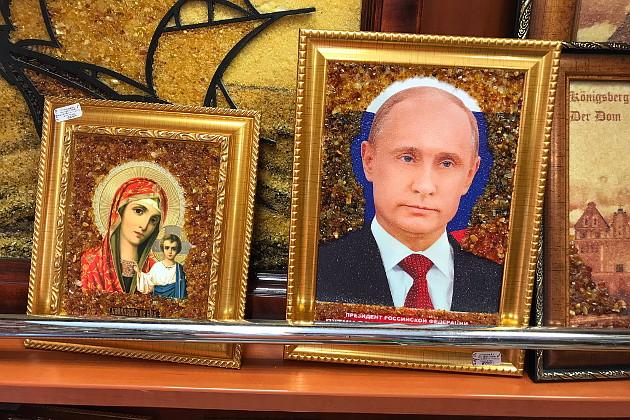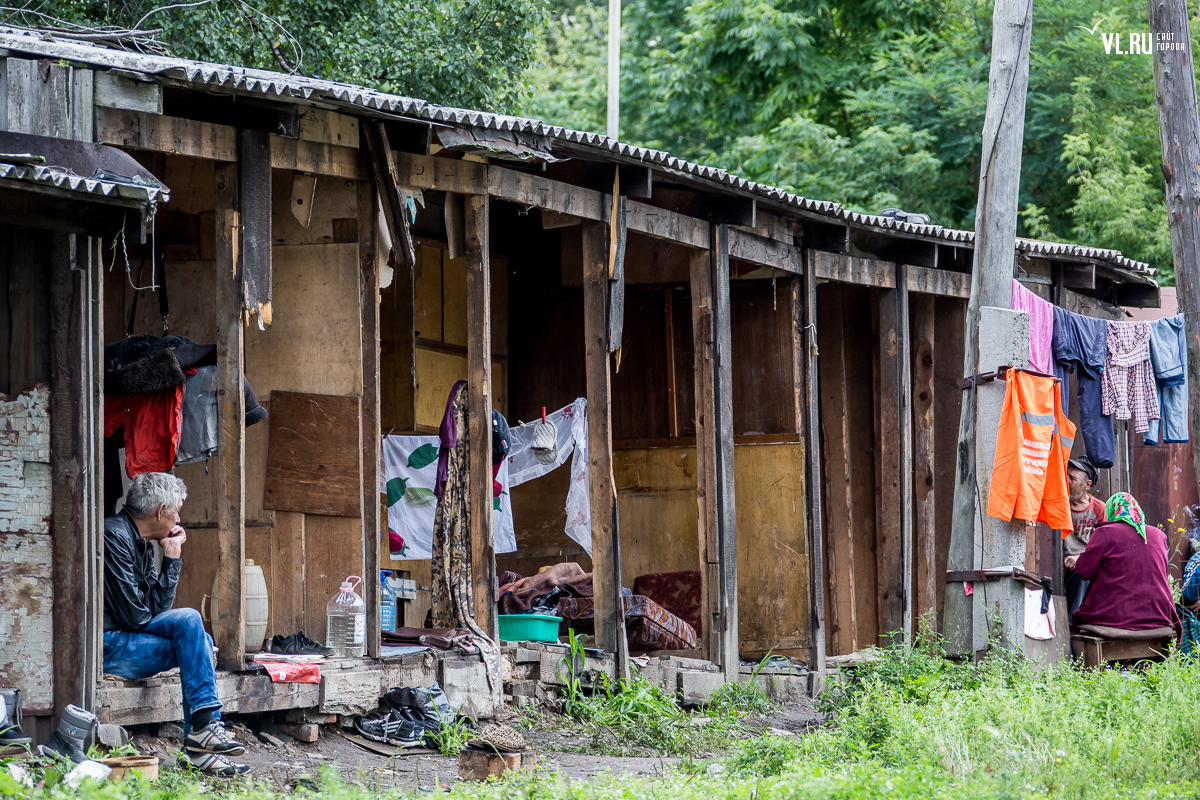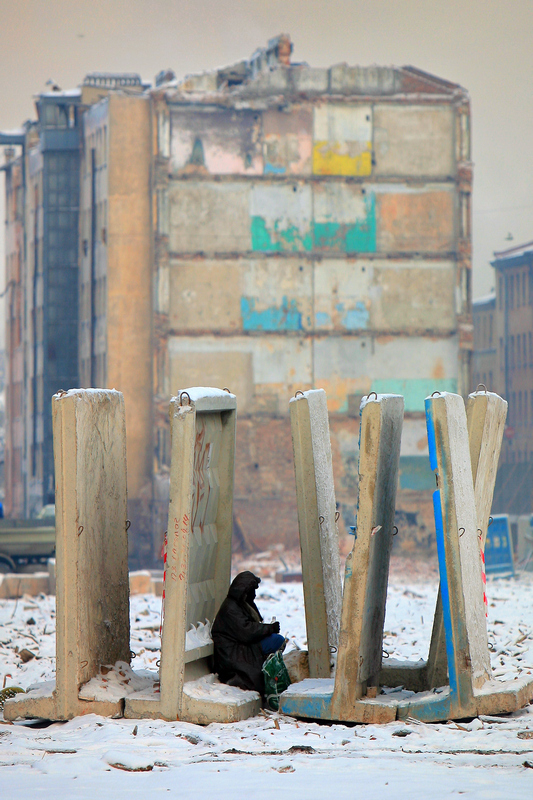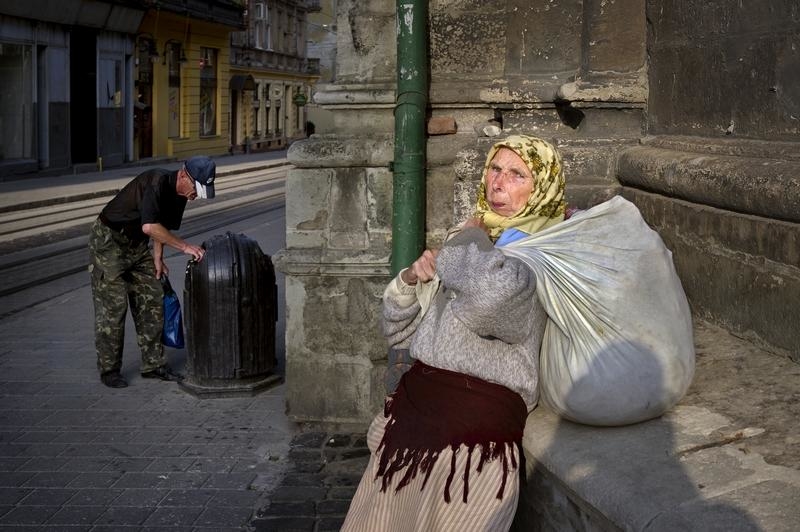The flood of news stories from a country as large, diverse and strange as the Russian Federation often appears to be is far too large for anyone to keep up with. But there needs to be a way to mark those which can’t be discussed in detail but which are too indicative of broader developments to ignore.
Consequently, Windows on Eurasia each week presents a selection of 13 of these other and typically neglected stories at the end of each week. This is the 88th such compilation, and it is again a double issue. Even then, it is only suggestive and far from complete, but perhaps one or more of these stories will prove of broader interest.
1. Putin’s ‘All Wet,’ Russian Bloggers Say
The Russian blogosphere has had a field day with pictures showing Putin standing in the rain when placing flowers on the eternal flame in Moscow. That he is “all wet” is one of the more charitable comments on the Russian net.
Russian media have also devoted a lot of time to reports that the Kremlin leader is about to get remarried, an election move in the minds of many designed to silence those who suggest he has homosexual inclinations.
Other Putin developments this week:
- He declared that promoting patriotism is a more important task for the schools than spreading knowledge.
- He called for re-introducing Soviet-style labor training in the educational system.
- He began using VKontakte social network to greet students, raising the possibility that the world may soon have another leader who tweets his messages.
- Russian commentators compared him to Kim Jong Un and to Stalin.
- Putin icons are now available for home use for 10 US dollars.
- The US has now sanctioned a company operated by Putin’s cook, bringing the noose inside the Kremlin as it were.
- And polls show that Putin’s support among Russians is gradually but consistently declining.
2. Russians’ Real Incomes and Employment Continue to Fall and Wage Arrears to Rise
Despite some positive figures in May, the real incomes of Russians continued to decline, unemployment and underemployment to rise, and wage arrears to grow.
The shadow economy is growing again and few see a way out of that anytime soon.
Few Russians believe official statistics on inflation. They can see fewer new stores and more that have closed for lack of business.
Bank supervision has been rated as inadequate, and Russia’s banks are now running out of hard currency, an indication that Russians are buying more of it as a hedge.
3. Half of Russians Say They Don’t Like Government’s Social Services – and Half Say They Can’t Get Them
The Russian government’s support for social services like health care has declined so far that Russians are about equally divided on whether they are any good at all or even accessible.
In other health-care-related news, Russia has firmed up its leadership in the number of abortions per capita, it has cut spending on cancer treatments across the board, it faces syphilis, HIV and tuberculosis epidemics among immigrant workers.
Russian school children are increasingly rated as unhealthy.
One Russian in five doesn’t have enough money to buy prescribed medicines.
And government efforts to reduce competition in cemetery services mean that when Russians die, their relatives will have to pay higher prices to have them interred.
There was one amusing development in this sector, however. Last week, the head of a psychiatric hospital in Pskov called the police to suppress a protest at his facility that in fact had never happened, something that raises questions as to who has been properly admitted to that facility.
4. Class Distinctions Growing and Becoming More Irritating
A third of Russian young people say they would like to leave the country but many can’t because of debt – 1.6 million Russians are now banned from leaving because they owe money.
Moreover, many young people can’t find jobs in Russia in the fields for which they were trained. And that makes reports that wealthy Russians now not only move abroad whenever they live, including to avoid taxes, and that such parents send two-thirds of their children to foreign universities increasingly infuriating.
Many poorer Russians are also less than pleased by reports that those who can afford it are choosing to travel to Türkiye rather than to go to Crimea or the Caucasus as Moscow recommends.
5. Two-Thirds of All Official Alcohol Substandard and Ten Percent of Moscow Apartments ‘Unsuitable for Habitation’
Russians drink an enormous amount of samogon, but even those who consume only officially registered alcohol get in trouble as 65 percent of that does not now meet Moscow’s health standards.
Meanwhile, officials report that one in every ten rental apartments in Moscow are not fit for human habitation. These two problems may be coming together: officials plan to open more alcohol stores in the neighborhoods to which those who had been living in khrushchoby are scheduled to be shifted.
6. LGBT Repression on Rise in Russia
Although it hasn’t received the attention Chechnya’s attacks on gay people did, Russian actions promoting homophobia and even direct attacks on gays have increased in recent weeks.
Moscow has rejected European Court’s finding that its anti-gay propaganda law violates international norms.
Russian orthodox priests are now telling Russian men to grow beards to protect themselves from homosexuality, Russian parents and teachers are opposing sex education because they say it propagandizes gay life styles, and gangs in major cities are now targeting LGBT people for attack.
7. Russian Landlords Increasingly Racist
Many non-Russians now face open and completely illegal discrimination by landlords when they try to rent rooms, something the authorities are doing almost nothing to stop and that many non-Russians now view as a fact of life they must accept at least for now.
Other ethnic news that attracted little attention this past week:
- There was a mass fight between Uzbek and Tajik gastarbeiters in Sakha
- A Zhirinovsky candidate running for head of the Buryat Republic called for eliminating it and all other non-Russian republics as well
- And officials in the North Caucasus say that beating wives is not contrary to law.
8. Russian Regions Want Flights that Don’t Require Going Through Moscow
The collapse in the number of commercial airports in Russia since Soviet times from 1200 to 200 and of regional carriers means that those who want to travel from one region to another often have to go through Moscow even more often than before 1991.
That is hurting the economy and officials in the regions are calling for change. Officials in border regions are also seeking direct flights to neighboring countries: an airlink between Buryatia and Mongolia has now been resumed after a 91-year hiatus.
9. Protests Spread Geographically, Numerically, and in Terms of Subject
Much attention has focused on the fact that the June 12 demonstrations were twice as large as the March 26 ones and that they involved people in 187 cities, the largest number ever.
But that is just part of a broader trend, and despite the holiday, it continued to spiral:
- More than 200,000 Russians signed a protest against the government’s desire to make the decisions of police presumed correct
- Workers struck over wage arrears in Yamal
- Rostov residents picketed over the actions of the Russian Guard there and over the illegal actions of banks against those who have taken out loans
- Muscovites continued to protest about plans to demolish the khrushchoby
- Medical students protested conditions of their training
- And Daghestani parents traveled to Moscow to protest the continued existence of two and three-shift schools in their republics.
10. UralVagonZavod Workers Told to Submit to Psychiatric Exams or Lose Their Jobs
The factory that five years ago was a symbol of support for Putin was the site this week of a classical example of the kind of repression he has visited on Russians: workers there were ordered to submit to psychiatric exams about their protest attitudes or face dismissal.
While elsewhere:
- Soviet norms are returning to Russian workplaces
- The Duma has agreed to keep secret the property holdings of senior officials, opening the way to repression of any who reveal such information
- Russia’s extradition system has been found in violation of international law
- Some Duma members want to make cursing in the family a crime
- And the Russian authorities displayed the level of their competence when they briefly blocked Google because they entered the wrong code.
11. Regions Want Control over Monuments So They Can Decide Which to Destroy
Voronezh deputies are pressing Moscow to allow regional governments to decide which monuments can go up and which not, rather than having this process centralized.
Meanwhile, battles over monuments continue in Tambov, St. Petersburg, Karachay-Cherkessia, Buryatia, Kaliningrad, Ufa, Moscow and in the Russian Orthodox Church (see ng.ru, sova-center.ru, newizv.ru, newsland.com, kavkazr.com, nazaccent.ru, echo.msk.ru, rusk.ru, ruskline.ru, regnum.ru, rusk.ru and rusk.ru).
12. Russian Military Retirees Say High Inflation Crushing Them
Retired officers and non-coms say that high rates of inflations are eating away at their inadequate pensions, complaints that may have an impact on currently serving personnel as well.
Meanwhile, in an admission that draft avoidance is a bigger problem than Moscow typically admits, the Duma is considering lifting restrictions for hiring such people to work for the government.
But three other problems that surfaced this week may be even more immediately threatening:
- Russia now has three times as many police per capita as does the US
- The GRU (military intelligence) and FSB (descendant of the KGB) are now locked in what looks like almost open conflict
- And gun violence is now such a problem in Russia that even the Moscow Patriarchate is calling for gun control.
13. Russia’s Arms Build Up Faces Serious Obstacles
Many of the tanks Moscow is now producing are outdated before they leave the factory, Russian experts say, and Moscow is having problems developing new military transport aircraft because the components for such planes were made in what are now independent and often hostile foreign countries.
Given Russia’s continuing problems with its military, it is perhaps no surprise that it is increasingly relying on covert methods to kill its opponents abroad and spread fear beyond Russia’s borders.
14. IOC to Impose Harsh Sanctions on Russia for Doping
Moscow has claimed that it has cleaned up its act, but the International Olympic Committee says it must be punished for its past actions and that the body will announce new and broader sanctions against Russian athletics this fall.
Meanwhile, problems continue with preparations for the 2018 World Cup with Russians increasingly angry about how much money is going to this event when they don’t have enough for basic needs.
And while FIFA officials praised Russia’s operation of the Confederation Cup this year, there were problems with both security and fan violence.
15. Russian Officials have Failed to Build Roads or Other Infrastructure for Free Land in Far East
Despite Vladimir Putin’s support for handing out free land to Russians in the Far East in order to hold that country in the face of a Chinese challenge and to boost its economy, Russian officials have made it very difficult for those who decide to take up this offer.
They haven’t built any roads linking the land to the weak road network of the region, meaning that anyone who does go can’t move around easily, and they haven’t built basic infrastructure like water and sewer lines, let alone communications links either.
16. Murder Rate in Russia Now Three Times Greater than in US
Moscow has made a veritable cottage industry talking about how violent the United States now is, but an international comparison shows that in per capita terms, Russians are killing each other three times as often as Americans are. Compared to Japan, Russians are 40 times more likely to murder one of their compatriots.
17. Birthrates in Rural Russia Now Well Below Replacement Levels
Russian officials are worried that falling birthrates now threaten the country’s territorial integrity, but they have comforted themselves that this is simply a worldwide trend and the result of urbanization.
But new demographic figures show that Russia’s rural population now has a birthrate below replacement levels, something that means that people there can’t hope to make up for the even lower rates in the cities.
18. China Does What Moscow Can’t: Build Roads in Russia East of the Urals
Because of economic problems, Moscow has almost completely stopped highway construction east of the Urals.
China is stepping in to fill the void, financing a high-speed highway between Yekaterinburg and Chelyabinsk, a move that will help residents but disturb many Russians because of its geopolitical implications.
19. China Challenging Russia on Northern Sea Route
China is now challenging Russia’s dominance of the shipping on the Northern Sea Route and is building icebreakers at a rate that suggests Beijing, not Moscow, will be the dominant player there within a decade.
20. 4500 Russians Now Studying Theology, Ever More Want to Become Priests
Moscow’s recognition of theology as an academic discipline has sparked enormous interest in it, with 4500 Russians having signed up to study theology in 51 universities around the country.
This is the tip of a larger iceberg: ever more Russians are showing an interest in becoming Russian Orthodox priests.
21. Kremlin Now Focusing on Pre-Schoolers to Promote Patriotism
Worried about the participation of young people in anti-government demonstrations, the Kremlin has stepped up its patriotic education programs for school and university-age youth; but now the Presidential Administration has acknowledged that it must intervene with children far earlier to ensure that they grow up loyal Russian citizens and has launched programs to reach pre-schoolers.
22. Kremlin Restores Soviet-Style Committee for Solidarity with Asia and Africa
The Russian government has restored the old Soviet committee for solidarity with Asian and African countries, a body that played a major role as a pass through and cover for Soviet involvement in the third world during the Cold War. The renewed group can be expected to do the same for Russians today.
23. Medvedev’s Plan for Building Arctic Islands Seen Creating New Opportunities for Corruption
Dmitry Medvedev’s announcement that Russia will follow China and create islands in the Arctic Sea is unlikely to work, experts say, but it will become a new center for corruption, allowing the government to hand over even more money to its cronies.
24. Baikal Water Begins Flowing to China
Despite Russian protests and fears of its implications, water from Russia’s sacred Lake Baikal has begun to flow to parched Chinese consumers. Moscow is getting paid, but the lake is now under ever-increasing pressure as a result.
25. Dozens of Languages in Russia Under Threat of Extinction
Despite Moscow’s repeated insistence that no non-Russian language has died in the Russian Federation, UNESCO experts say that more than a dozen have and that more than four times that number are threatened with extinction in the coming decades.
And 12 more from countries in Russia’s neighborhood:
1. Ethnic Kazakhs Often Feel Like Second-Class Citizens in Their Own Country
Because of the dominance of Russian speakers among them, ethnic Kazakhs who speak Kazakh often feel like second-class citizens in their own country.
2. Turkmenistan has Gone Further in Demolishing Soviet-Era Social Supports than Any Other Country
Although Turkmenistan remains extremely authoritarian, it has gone further in demolishing the social supports that had characterized the entire Soviet Union and thus has left its population not only with no influence on the state but few protections either.
3. Belarusian Foreign Ministry Agrees to Cooperate with Russian Counterpart on Social Network Messaging
The Belarusian foreign ministry will now work closely with the Russian one in putting out common messages on social networks, something that will make it easier for Moscow to spread its position and harder to trace back to the Russian side.
4. Despite Withering Away of Kyrgyz Abroad, Bishkek Opposes Re-Immigration
Many Kyrgyz communities outside of Kyrgyzstan such as the Kyrgyz of Afghanistan’s Pamir Region are at the edge of extinction, but Bishkek opposes setting up a program for their repatriation because of the costs involved.
5. Georgian Patriarch Proposes Restoring Monarchy
The head of the Georgian Orthodox Church has suggested restoring the monarchy in his country.
6. Finnish Alcohol Tourists Shift from Estonia to Latvia
Tallinn’s decision to increase taxes and thus prices on alcohol has caused Finns who have long traveled there to drink or buy alcohol to shift their trips to Latvia.
7. Kyiv Hosts Gay Pride Parade, Rejecting Homophobia
The Ukrainian government allowed an LGBT march to take place in its capital, thus underscoring its commitment to breaking away from the homophobia of Russia and many other post-Soviet states and its commitment to adopting European standards.
8. Ukraine to Set Up Institute to Promote Country Abroad
Kyiv has announced that it is setting up a special institute which will be charged with promoting Ukraine in foreign countries.
9. Ukrainians have Revolutions, Russians have Coups
A major difference between the two Slavic countries, some experts say, is that the population of Ukraine feels itself as the source of power in the country and thus is prepared to rise against its government, unlike in Russia where deference to state power is far greater.
10. Tajikistan, Uzbekistan Tighten Controls over Haj
Dushanbe has announced that it will permit only those of its citizens who are over 40 to go on the haj to Mecca, and Tashkent has announced that it is setting up a computerized data base to track those who make the Islamic pilgrimage and what they do afterwards.
11. Pictures Reveal Growing Contrast Between Estonian and Russian Border Cities
Many people say that it is inappropriate to compare Russian cities with those in any other country because of climatic conditions and other reasons, but pictures of Estonia’s Narva and Russia’s Ivangorod, two cities separated only by a river, quite similar in Soviet times, and both populated largely by ethnic Russians show just how different the two have developed under the very different conditions in the two countries since 1991.
12. Georgia Only Former Soviet Republic to Be Listed Among Top Ten Safest Countries
Despite problems, Georgia is today the only former Soviet republic now listed among the top ten safest countries for its citizens and visitors in the world.
Related
- “Moscow’s appropriation of Ukrainian history not limited to Queen Anna Yaroslavna” and other neglected Russian stories
- “Putin said to orchestrate Trump’s impeachment” and other neglected Russian stories
- “Putin tells why Russia is seedbed of terrorism” and other neglected Russian stories
- ‘3 million people fled from Russia-occupied Donbas’ and other neglected Russian stories
- “Putin backers to ‘bare their breasts’ for Kremlin leader” and other neglected Russian stories
- ‘Kremlin’s greatest worry: will the siloviki shoot at the people?’ and other neglected Russian stories





